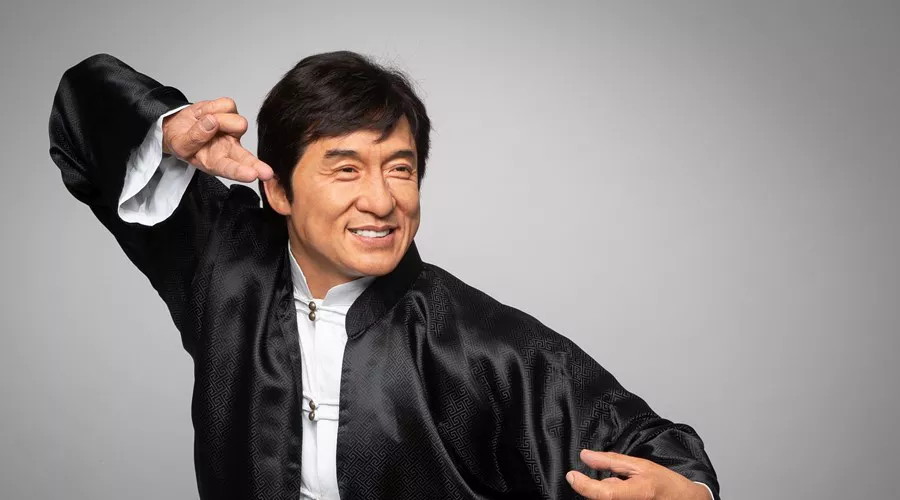Jackie Chan’s Enduring Legacy
Jackie Chan, the legendary martial artist, actor, and filmmaker, has captivated audiences worldwide with his extraordinary talent, charisma, and unique blend of action and comedy. While he has not won a competitive Oscar, his illustrious career and groundbreaking contributions to the world of cinema have earned him widespread acclaim and admiration from fans and industry peers alike.
The Rise of a Martial Arts Icon
Jackie Chan’s fame stems from his unparalleled skills as a martial artist and stunt performer, his innovative approach to action filmmaking, and his charismatic on-screen presence. Born on April 7, 1954, in Hong Kong, Chan began his martial arts training at a young age under the guidance of Master Yu Jim-yuen at the China Drama Academy. His rigorous training in traditional Chinese martial arts laid the foundation for his future success in the entertainment industry.
Stuntman to Superstar
Chan’s big break came when he was cast as a stuntman in Bruce Lee’s films “Fist of Fury” and “Enter the Dragon.” Inspired by Lee’s charisma and athleticism, Chan began to pursue a career in acting and stunt work, determined to carve out his own path in the world of cinema.
In the 1970s, Jackie Chan rose to prominence as a martial arts film star in Hong Kong, starring in a series of successful action films such as “Snake in the Eagle’s Shadow” and “Drunken Master.” His acrobatic fighting style and comedic flair set him apart from his contemporaries, earning him a dedicated fanbase and critical acclaim.
International Stardom: Jackie Chan’s Breakthrough with “Police Story”
However, it was Jackie Chan’s groundbreaking work in the “Police Story” series that propelled him to international superstardom. Known for their jaw-dropping stunts and high-octane action sequences, the “Police Story” films showcased Chan’s unparalleled dedication to pushing the boundaries of physicality and spectacle in cinema.
The Jackie Chan Brand: Action and Comedy
Unlike Bruce Lee, who focused primarily on serious martial arts dramas, Jackie Chan distinguished himself with his signature blend of action and comedy. His willingness to perform his own stunts and embrace slapstick humor endeared him to audiences of all ages, making him a beloved figure in global cinema.
Jackie Chan’s Evolution in Film
Throughout his career, Jackie Chan has continued to evolve as an actor, director, and producer, exploring diverse genres and collaborating with filmmakers from around the world. From his early martial arts classics to his more recent Hollywood blockbusters, Chan’s versatility and creativity have solidified his status as an international icon.
Recognition and Honors: Jackie Chan’s Impact on Cinema
While Jackie Chan has not won a competitive Oscar, he has received numerous accolades and honors for his contributions to the film industry. In 2016, he was awarded an honorary Oscar for his “extraordinary achievements in film” and his “unique international career.” This prestigious honor recognized Chan’s lifetime of work and his impact on global cinema, cementing his legacy as one of the most beloved and influential figures in the history of film.
Beyond the Silver Screen: Jackie Chan’s Philanthropy and Humanitarian Efforts
Beyond his achievements in film, Jackie Chan is also known for his philanthropy, humanitarian efforts, and dedication to promoting cultural exchange and understanding. As a UNICEF Goodwill Ambassador and advocate for children’s rights, Chan has worked tirelessly to support charitable causes and make a positive impact on the world.
Conclusion: Jackie Chan’s Enduring Impact
In conclusion, while Jackie Chan has not won a competitive Oscar, his fame and legacy extend far beyond awards and accolades. His extraordinary talent, groundbreaking contributions to cinema, and unwavering dedication to his craft have earned him a special place in the hearts of audiences around the world. Jackie Chan’s impact on the world of film and his enduring popularity serve as a testament to his remarkable talent, resilience, and indomitable spirit.
https://www.rnada.com/archives/12582
https://www.rnada.com/archives/12582
https://www.rnada.com/archives/12582

